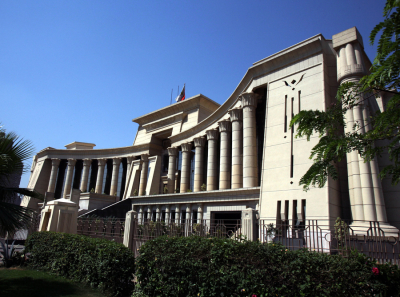Boys Convicted of Desecrating Koran in Egypt; Eventually Released

A court in Egypt has quietly found two Coptic Christian boys guilty of "showing contempt for Islam" but only remanded them to the custody of their parents, an attorney for one of the children said.
In a case of alleged blasphemy that inflamed passions in provincial Egypt, a judge in Beni Suef, 62 miles south of Cairo, ruled the two boys guilty of desecrating pages of the Koran in spite of conflicting statements by the accuser and doubts about the functionally illiterate boys' capacity to identify Koranic verses, attorney Karam Ghoubrial said.
The judge cited the boys' age in the light sentence; they were 9 and 10 at the time of the Sept. 30 incident. By issuing a guilty verdict in near secrecy on Feb. 4 – the ruling came to light only the past week – and declining to hand down prison time or a fine, the judge seems to have averted foreign criticism while quelling the anger of Muslim villagers.
The same day the ruling was issued, the boys' lawyers appealed on grounds that the accuser's testimony contradicted statements he made to law enforcement officers. On Feb. 24, the court declined to hear the appeal, stating that is was unnecessary, and allowed the guilty verdict to stand.
Nabil Farag and Mina Rizq (previously misidentified as Nabil Naji Rizq and Mina Atallah) were rummaging through a trash pile in Ezbat Marco in Beni Suef Province when they supposedly desecrated pieces of paper containing verses from the Koran, according to the father of Mina Rizq. He said the boys are innocent.
"Our village is on Bahar Mousa Canal, and there is a part where women dump rubbish, and children go to look for some nails or metal things to sell," Nady Rizq told Morning Star News. "While they were playing in the rubbish, a man called Ibrahim Mohammed Ali went to look and saw a few pieces of papers with dirt on them and thought that the boys peed on it and tore the Koran, but they didn't."
Rizq said Ali took the boys to a church and interrupted the priest during a service to announce the accusation. The priest allegedly slapped one of the boys, according to attorney Ghoubrial, and demanded to know what they did. The boys said they hadn't done anything wrong.
That evening, Ali reported the incident to local police, and the boys were taken into custody that day.
After intervention by Ghoubrial and human rights activists, the children were released to their parents on Oct. 4 pending resolution of the case. Ghoubrial said that despite media reports to the contrary, the boys were treated well in detention by a Muslim warder who believed they were innocent.
The court's nearly secretive verdict came months after Egyptian President Mohamed Morsi publicly declared that he had pardoned the children, in an apparent attempt to quiet international objections. Ghoubrial said that the president blatantly lied.
"The president has no authority to release somebody unless there has been a trial and a sentence was given, so he can give a release order," Ghoubrial said. "It was all lies inside lies."
After the February court decision, Ghoubrial added, Morsi made no effort to pardon the two boys.
The attempted appeal was based on contradictions in Ali's testimony. Ali told police he saw the children urinating and defecating on pages of a Koran, Ghoubrial said, but later told the prosecuting attorney he didn't actually see them do it.
There apparently was some waste on the pages, but there was some question as how to identify it and whether it was even of human origin, he said. Ghoubrial also produced evidence that both children are functionally illiterate and wouldn't be able to identify a Koran or Koranic verses.
In addition, there was doubt that a Koran or pages from it would be found in a dump, with speculation that it was possibly just a discarded Arabic lesson that used Islamic scriptures or something similar.
Ghoubrial is allowed one final appeal, which he said he plans to file in April.
"The boys are falsely accused," he said.
Beni Suef became a flash point in January after a criminal court sentenced Nadia Muhammad Ali and her seven children to 15 years for re-converting to Christianity after having converted to Islam. Leaving Islam is punishable by death in the traditional view of sharia that most Muslim scholars uphold, and sharia is cited as a source of law in Egypt's new constitution approved in a December referendum.




























